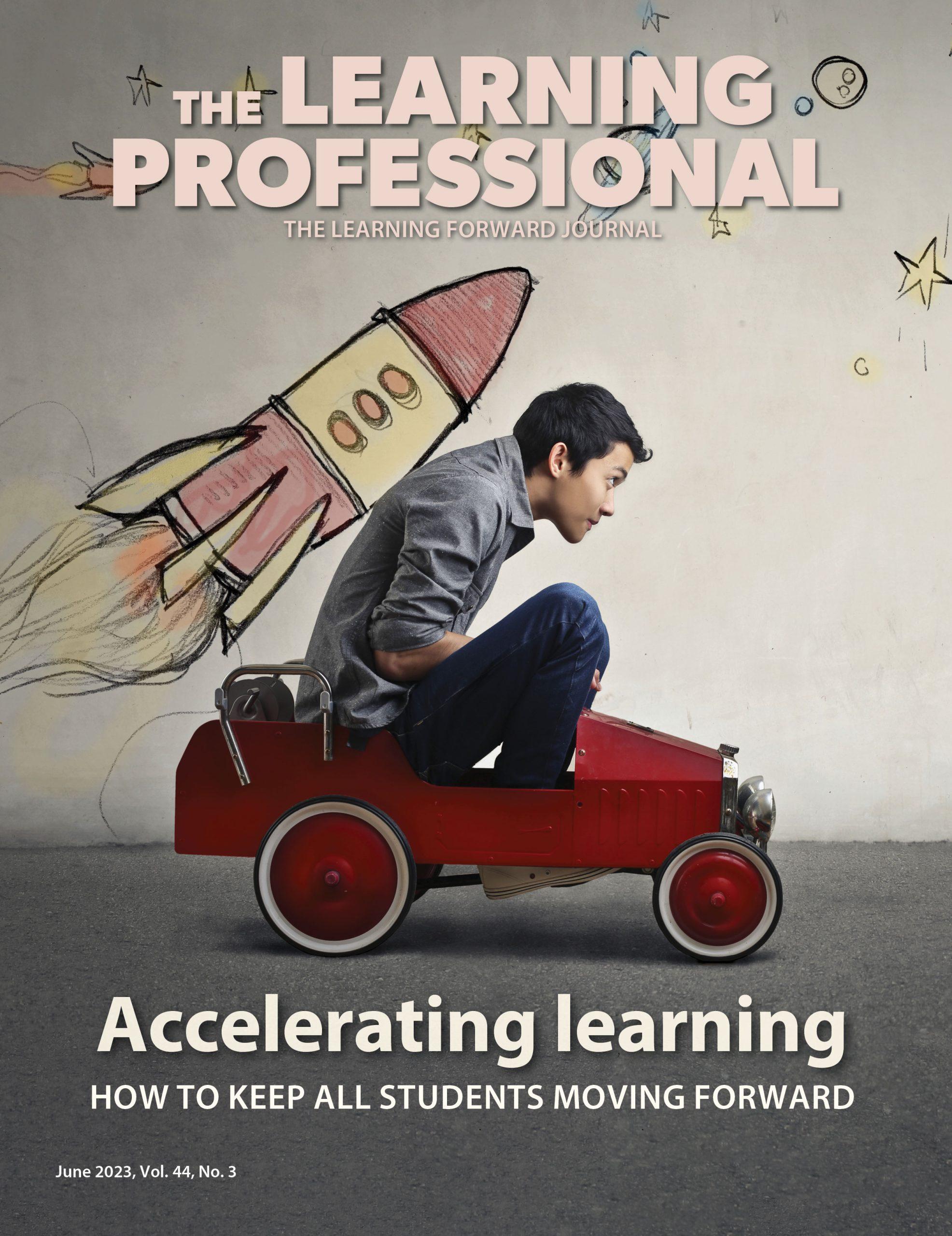Link Data to Learning Goals
Common District Assessments Connect Teaching Effectiveness to Student Performance
By Kay Psencik and Rhonda Baldwin
August 2012
Vol. 33 No. 4
Read the remaining content with membership access. Join or log in below to continue.
Sed ut perspiciatis unde omnis iste natus error sit voluptatem accusantium doloremque laudantium, totam rem aperiam, eaque ipsa quae ab illo inventore veritatis et quasi architecto beatae vitae dicta sunt explicabo. Nemo enim ipsam voluptatem quia voluptas sit aspernatur aut odit aut fugit, sed quia consequuntur magni dolores eos qui ratione voluptatem sequi nesciunt. Neque porro quisquam est, qui dolorem ipsum quia dolor sit amet, consectetur, adipisci velit, sed quia non numquam eius modi tempora incidunt ut labore et dolore magnam aliquam quaerat voluptatem.
Lessons Learned Along the Way
- Leadership matters. District-level teacher leaders, teacher leaders at their building, teacher assessment writing teams, and the principal leadership team have all been integral to the district making significant movement toward achieving its goal. When leadership is shared throughout the district and teams of teacher leaders and administrators work collaboratively to achieve common goals, those leaders become a strong, powerful voice in building understanding and shared vision in the district.
- Listening to all voices, challenging the status quo, not losing sight of the vision, and encouraging the learners along the way are essential to progress.
- Growth in student learning is not always clearly discernable from a single assessment strategy, even if that strategy is clearly aligned to the state standards.
- Connecting professional learning goals to student data builds ownership in student outcomes and changes in practice. This practice is aligned with the cycle of continuous improvement as illustrated with the 4th-grade team in this article: analyze data, establish learning goals for students and staff, develop effective instructional strategies, engage in professional learning and coaching, and assess the impact of those adult learning experiences on student performance.

Sample Curriculum and Planning Rubric
This example of a rubric from the Georgia CLASS Keys system for the curriculum and planning strand highlights at the top the overall areas that a teacher addresses for a strand. The details below show the evidence and actions that demonstrate a teacher’s performance along a continuum for just one aspect of that strand.
| Plans with deep knowledge of content and delivery. | Demonstrates a clear understanding of the curriculum. | Plans interdisciplinary instruction with real-world connections. |
| Curriculum and planning | ||
| Uses the curriculum to plan instruction and assessment. | Uses an organizing framework to plan instruction. | Plans assessment to measure mastery of the curriculum. |
| Curriculum: A system for managing and facilitating student achievement and learning based on consensus-driven content and performance standards.
CP 1.1: The teacher plans instruction that demonstrates strong knowledge of content and effective instructional delivery. |
||
| Not evident | Emerging | |
| Continuum of improvement | The teacher does not plan instruction that demonstrates adequate knowledge of assigned content area(s) or the teacher is unable to teach content using effective instructional methodology. | The teacher plans instruction based on knowledge of the assigned content area; however, the teacher lacks depth in content knowledge or cannot organize or present content effectively so that students can learn. |
| Examples of evidence |
Teacher evidence
Lesson plans/curriculum units Covers content superficially in lesson plans. Identifies material to be covered, but rarely thinks about how students will learn the material. Provides students with no opportunities to use content creatively in a peer group or individually. Observations Asks students primarily for facts rather than in-depth concepts. Overlooks incorrect or confused student responses by moving on to another student or changing topics. Controls class discussions and limits student interactions with one another. Conferences Cannot explain how students or groups learn content differently. Blames students for their lack of content knowledge or interest in the subject area. |
Teacher evidence
Lesson plans/curriculum units Designs plans to help students grasp factual knowledge and use content knowledge. Creates strategies to engage students in content, but strategies are isolated and/or may lack coherence or depth across lessons. Observations Uses current and accurate content knowledge in teaching. Explains content in more than one way. Relies on teacher-student-teacher response pattern that keeps students dependent on teacher for approval/disapproval of their ideas. Asks simple questions of fact or interpretation, but rarely higher-level questions that enable students to grasp deeper concepts. Conferences Demonstrates enthusiasm and interest in teaching and learning more about field of study. Believes that all students learn content the same way rather than acknowledging learning differences. |
| Examples of evidence |
Student evidence
Students frequently produce misinterpretations of content in assessments or discussions. Students report that the teacher does not understand the content area(s). |
Student evidence
Students learn accurate information, but also are interested in different ideas people have about content. Students report benefits from learning in the content area(s). |
| Curriculum: A system for managing and facilitating student achievement and learning based on consensus-driven content and performance standards.
CP 1.1: The teacher plans instruction that demonstrates strong knowledge of content and effective instructional delivery. |
|
| Proficient | Exemplary |
| The teacher plans instruction that consistently demonstrates knowledge of major concepts in the assigned content area. The teacher also organizes and presents content effectively so that students learn. | The teacher plans instruction that demonstrates a depth of knowledge of major concepts, assumptions, debates, processes of inquiry, and ways of knowing that is central to the assigned content area and presents content effectively so that students learn. |
| Teacher evidence
Lesson plans/curriculum units Provides a strong content base in all plans, including major concepts and assumptions as well as facts. Designs opportunities for students to learn content in appropriate ways for the content type. Designs extended practices that apply acceleration/remediation according to learning needs. Observations Uses students’ prior knowledge and/or misconceptions to guide instruction. Expects and encourages students to learn and reason about problems in the content area(s). Arranges opportunities for students to explore content knowledge in complex ways and report discoveries to others. Conferences Articulates in-depth, complex knowledge of content and teaches it appropriately for most learners’ needs. Demonstrates awareness that content knowledge in any field is complex and constantly evolving. Recognizes there are multiple perspectives on any topic. Articulates, questions, and reflects on conceptual issues in the field. |
Teacher evidence
Lesson plans/curriculum units Encourages students to debate issues in the content area(s). Engages students in active learning through exploration and hands-on learning through projects, inquiry processes, and the use of technology. Anticipates common misconceptions and makes modifications to address student needs. Plans interventions when students do not understand. Observations Asks questions that demonstrate the teacher thinks like someone in the field and helps students to see the world in that way. Provides subject-specific scaffolding, coaching, and modeling to support students as they learn new concepts. Conferences Forms a broad understanding of how diverse learners acquire specific content knowledge. Adapts instruction during the lesson to meet specific student needs. |
| Student evidence
Students observe (in surveys, etc.) that teachers help them understand rather than judge them for misconceptions. Students grasp the meaning as well as the facts of the content they are learning. Students recognize and discuss issues related to the content area. |
Student evidence
Students demonstrate understanding of content through explanation, interpretation, empathy, perspective, application, and self-knowledge. Students listen, learn, generate data, and use evidence in ways acknowledged by those in the content area(s). |
Recent Issues
TAKING THE NEXT STEP
December 2023
Professional learning can open up new roles and challenges and help...
REACHING ALL LEARNERS
October 2023
Both special education and general education teachers need support to help...
THE TIME DILEMMA
August 2023
Prioritizing professional learning time is an investment in educators and...
ACCELERATING LEARNING
June 2023
Acceleration aims to ensure all students overcome learning gaps to do...









